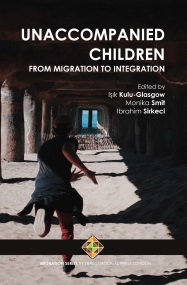Dropping out of Education: Refugee Youth Who Arrived as Unaccompanied Minors and Separated Children
Dropping out of Education: Refugee Youth Who Arrived as Unaccompanied Minors and Separated Children
Author(s): Aycan Çelikaksoy, Eskil Wadensjö
Subject(s): Education, Geography, Regional studies, State/Government and Education, Family and social welfare, Policy, planning, forecast and speculation, Migration Studies
Published by: Transnational Press London
Keywords: Sweden; UM; unaccompanied minors; migration; education; youth; separated children;
Summary/Abstract: Unaccompanied minors or separated children (UMs) are children under the age of 18 who are outside their country of origin and came to Sweden unaccompanied by a parent or other legal guardian. Such migration has increased around the world and it is the most fragile type of migration across countries. This population is considered ‘vulnerable’ due to their young age during the fleeing process combined with the fact that they are unaccompanied by their parents or legal guardians (Derluyn and Broekaert, 2008; Derluyn and Vervliet, 2012; Rodriguez, et al., 2018). These children face heightened vulnerability to exploitation, and violations of their rights by virtue of their age and status. The global movement of unaccompanied and separated children presents challenges for children’s rights and well-being. Research on unaccompanied minors has often focused on vulnerabilities of this group (Derluyn et al., 2008). However, recent studies have increasingly stressed the strength, resilience, and agency of unaccompanied minors (UMs), despite the traumatic experiences and challenges (see e.g. Luster et al., 2010).
Book: Unaccompanied Children: From immigration to integration
- Page Range: 109-125
- Page Count: 17
- Publication Year: 2019
- Language: English
- Content File-PDF

